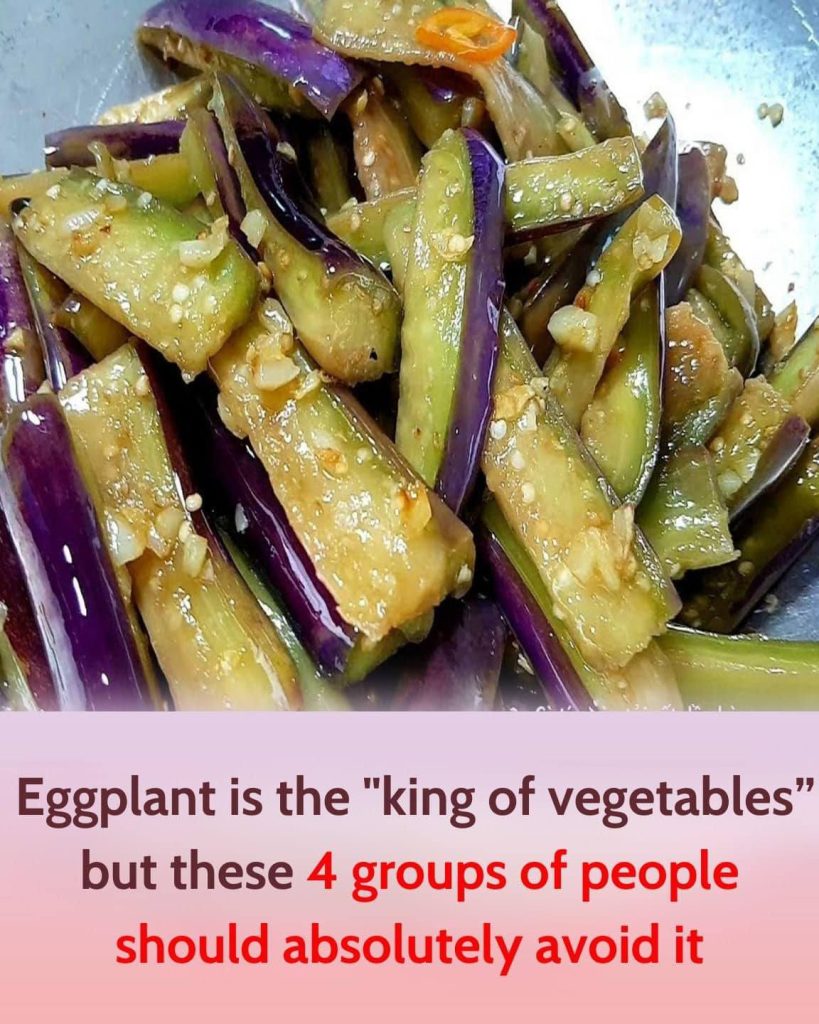ADVERTISEMENT
Eggplant, often hailed as the “king of vegetables,” is a versatile and nutrient-rich addition to countless dishes worldwide. Its deep purple hue and unique texture make it a favorite in cuisines ranging from Mediterranean to Asian. Packed with vitamins, minerals, and antioxidants, eggplant offers numerous health benefits, including improved heart health, weight management, and cancer prevention. However, despite its numerous advantages, eggplant may not be suitable for everyone. Here are four types of people who should consider avoiding or limiting their intake of eggplant.
1. Individuals with Nightshade Sensitivities
Eggplant belongs to the Solanaceae family, commonly known as nightshades, which also includes tomatoes, potatoes, and peppers. For individuals with sensitivities or allergies to nightshade vegetables, consuming eggplant can lead to adverse reactions.
Symptoms of Nightshade Sensitivity:
- Joint pain and inflammation
- Digestive issues such as bloating, gas, and diarrhea
- Skin rashes or eczema flare-ups
- Headaches or migraines
Why Avoid Eggplant? Nightshade vegetables contain alkaloids like solanine and capsaicin, which can exacerbate inflammation and trigger allergic responses in sensitive individuals. If you experience any of the above symptoms after consuming eggplant or other nightshades, it may be best to eliminate them from your diet.
2. People with Kidney Stone Risks
Eggplant contains oxalates, naturally occurring compounds that can contribute to the formation of kidney stones in susceptible individuals. High oxalate levels can bind with calcium in the kidneys, forming calcium oxalate stones, which are the most common type of kidney stones.
Who is at Risk?
- Individuals with a history of kidney stones
- Those diagnosed with hyperoxaluria (excess oxalate in the urine)
- People with certain gastrointestinal diseases that affect oxalate absorption
Managing Oxalate Intake: If you are prone to kidney stones, it’s essential to monitor and potentially limit foods high in oxalates, including eggplant. Consulting with a healthcare provider or a registered dietitian can help you create a balanced diet that minimizes the risk of stone formation while ensuring adequate nutrient intake.
CONTINUE READING ON THE NEXT PAGE 🥰💕
ADVERTISEMENT
